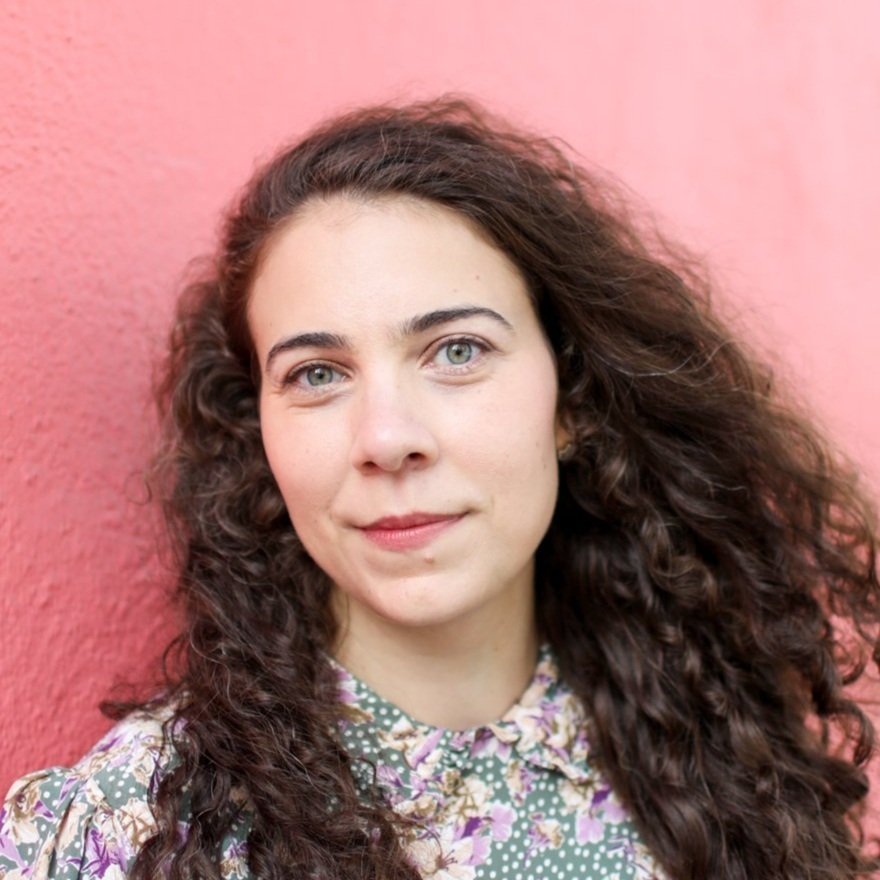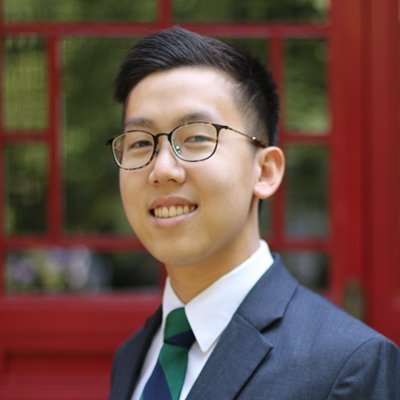AI Policy Fellowship 2025
The IAPS AI Policy Fellowship is a fully-funded, three-month program for professionals from varied backgrounds seeking to strengthen practical policy skills for managing the challenges and opportunities of advanced AI.
The program will run from September 1 to November 21, 2025, in Washington, D.C., and remotely.
Apply by May 7th, 2025, 12 PM Eastern Time.
Join us for an informational webinar on April 22 at 1:00 PM ET (UTC–5:00), where prospective applicants can hear directly from IAPS staff and former fellows and ask questions about the program. Register here.
Fellowship Overview
-

Dates and Location
Sep 1st to Nov 21st
D.C. or remoteApplicants may choose to do the Fellowship fully in-person in D.C. or remotely. All fellows will come together for a required in-person residency in D.C. on Sep 1-12.
-

Financial Support
Senior Fellows will receive $22,000 and Fellows will receive $15,000 as a stipend to work full-time during the 3-month program. We can provide part-time options for exceptional candidates. -

Who Should Apply?
Anyone is welcome to apply. We welcome a range of policy and technical backgrounds (e.g., industry, government, think tanks), and have Senior Fellow and Fellow positions for a range of seniority levels. -

Day-to-day
Fellows will strengthen their AI policy track record by working with an expert on projects such as writing policy pieces, organizing ambitious convenings, and briefing officials.
About the Fellowship
Tackle real-world AI policy challenges
Fellows work with designated experts on projects that will influence national and global AI policies. Key policy fields include national security implications of AI, government acquisition and procurement of AI, CBRN capabilities of AI models, export controls, evaluations, geopolitics of AI, hardware-enabled mechanisms, jurisdictionally-focused policy questions (e.g., U.S., U.K., and E.U.), among several others.
Fellows’ projects can have a variety of formats depending on each expert and fellowship coordinator, and will be set in partnership with each fellow. In general, fellows are expected to finalize advanced drafts of policy writing, lead presentations or events for key stakeholders, or produce smaller outputs responding to short-term policy opportunities. These concrete outputs help strengthen fellows’ AI policy track record while achieving impactful outcomes.
Preparing you for after the Fellowship
The Fellowship is designed to support a smooth transition into an AI policy career. Whether you're aiming to work in government, a think tank, or industry, the program equips you with the skills, knowledge, and connections needed to succeed.
In addition to working closely with a leading expert in the field, fellows receive:
Weekly one-on-one coaching from an IAPS Fellowship Coordinator focused on career development, project management, and productivity;
Ongoing support from IAPS researchers and policy staff, including direct feedback on their projects, such as via weekly work-in-progress sessions;
Access to our professional network to help identify opportunities across sectors; and
Additional financial assistance, in select cases, to support career transitions after the program.
Join our community in Washington, D.C.
All fellows will begin the program with a two-week in-person residency in Washington, D.C. (September 1–12), where they will connect with the full IAPS team and partner experts. During this time, fellows will meet their designated expert, participate in trainings on AI systems and policy challenges, workshop their fellowship projects, and take part in a range of events—including roundtables, policy briefings, and informal networking gatherings.
For fellows based in D.C. throughout the program, IAPS will offer office space and regular in-person events to support ongoing collaboration and engagement.
Join remotely from around the world
IAPS welcomes remote fellows from many countries and provides multiple ways to stay connected and engaged. Every fellow (D.C. or remote) receives a support budget that can be used for in-person opportunities, such as attending conferences or meeting with their assigned expert.
As a remote-first organization, IAPS has the systems and experience to fully support remote participation and are able to legally hire in many countries. However, due to administrative or legal constraints, there may be some exceptions. These vary by individual circumstance, and we’ll follow up directly if there are any limitations based on your location. If you have questions about a specific country, feel free to contact us at info@iaps.ai.
Featured fellows from our 2024 cohort
-

Christian Chung
RAND & PRINCETON
Christian worked with IAPS on AI procurement and security policies. He works at RAND as a technology and policy security fellow and is a PhD candidate at Princeton University.
-

Rida Fayyaz
MICROSOFT
Rida worked with IAPS on a field guide for policymakers about governing AI agents. She is now a Technical Program Manager in the Office of Responsible AI at Microsoft.
-

Tao Burga
INSTITUTE FOR PROGRESS
Tao worked with the Institute for Progress (IFP) and the Center for a New American Security (CNAS) on translating compute policy proposals for government and industry audiences. He is now a Technology Fellow at IFP.
-

Tereza Zoumpalova
THE FUTURE SOCIETY
Tereza worked with The Future Society (TFS) on the official consultation of experts and citizens for the Paris AI Action Summit. She is now an Associate at TFS.
Featured experts from the IAPS team
-

Amanda El-Dakhakhni
LEADERSHIP
Amanda is Acting Co-Director of IAPS and oversees our Compute Policy workstream. Previously, she spent several years advising emerging technology companies operating in complex environments, including Uber and Cruise (the autonomous vehicle division of General Motors). She also served in policy and legal roles in the U.S. Senate, U.S. Attorney’s Office, and the Obama-Biden White House.
-

Shaun Ee
FRONTIER SECURITY
Shaun is a Policy and Strategy Manager in the Frontier Security team. He focuses on policy questions at the intersection of cyber and AI, tapping on experience in national security, cybersecurity, and East Asia policy. Previously, he coordinated cyber policy for Singapore’s government under the Prime Minister’s Office, worked in Washington, DC as assistant director of the Atlantic Council’s cyber program, and served as a signaler in the Singapore Armed Forces.
-

Asher Brass
COMPUTE POLICY
Asher is a Senior Researcher working on AI security and compute policy. Before joining IAPS, Asher was Head of the Cyber Analysis Team at Cynerio, a medical device cybersecurity start-up. He also previously served as a cybersecurity officer in the Israeli Military Intelligence Directorate (Unit 8200) and was a Senior Technological Researcher at the Israeli Prime Minister's Office.
Frequently Asked Questions
Do I need to have a technical background or a deep technical understanding of AI systems?
No. The Fellowship is designed to train professionals from a variety of backgrounds and no technical expertise is expected.
Is anyone eligible to apply to the D.C. option?
Only candidates who have the right to work in the U.S. between September 1st and November 21st, 2025 are eligible to apply, as we are not able to sponsor visas for this Fellowship.
If I am eligible to apply to both the D.C. and remote options, can I apply to both?
Yes. While the selection process is similar, candidates might get into one but not the other option as the cohorts will be selected separately. If you are eligible and interested in both options, we recommend you select both boxes in the application form.
Will I receive additional funding to relocate to D.C.?
Not by default. We will consider additional support based on need in exceptional circumstances.
How will candidates be selected between Senior Fellow and Fellow roles?
Candidates will be selected based on experience and expertise.
Is there a difference in terms of programming for Senior Fellows and Fellows?
Not by default, as we have found that interactions across seniority levels tend to be among the best parts of the program for previous fellows. Fellows are welcome to request support for specific activities based on particular interests, skills, or aspirations.
What does the selection process look like?
It has three stages: the application form, a written task, and an interview. We expect to finalize selection by the end of June.
Can I do this part-time?
Fellows are expected to do the program full-time by default, but we can provide part-time options under exceptional circumstances.
Is there flexibility on the start or end dates?
Yes, under exceptional circumstances we can shift the start date to a few weeks later than Sep 1st, 2025. We rarely extend the Fellowship itself, but we may explore other options of continued collaboration, such as contracting former fellows for specific projects.
Curious about IAPS’s work?
Advanced AI systems pose both immense opportunities and complex challenges. IAPS addresses these with practical policy solutions at the intersection of AI policy and national security through in-depth policy research.
Curious about our past fellows?
Our fellows have secured positions in government, industry, leading think tanks, and academia, founded new projects and organizations, and been recognized on lists of the best AI policy researchers.
Still have questions?
Join our webinar on April 22 at 1:00 PM ET (UTC–5:00) to hear directly from IAPS staff and former fellows, and get answers to your questions about the program. Register here.
Applications are open until May 7th at 12 PM Eastern Time (UTC–5:00).
We’re looking forward to reviewing your application!
If you are unsure whether you would be a good fit for this program, we recommend you apply!
If you have any questions, feel free to reach out to us at info@iaps.ai.








